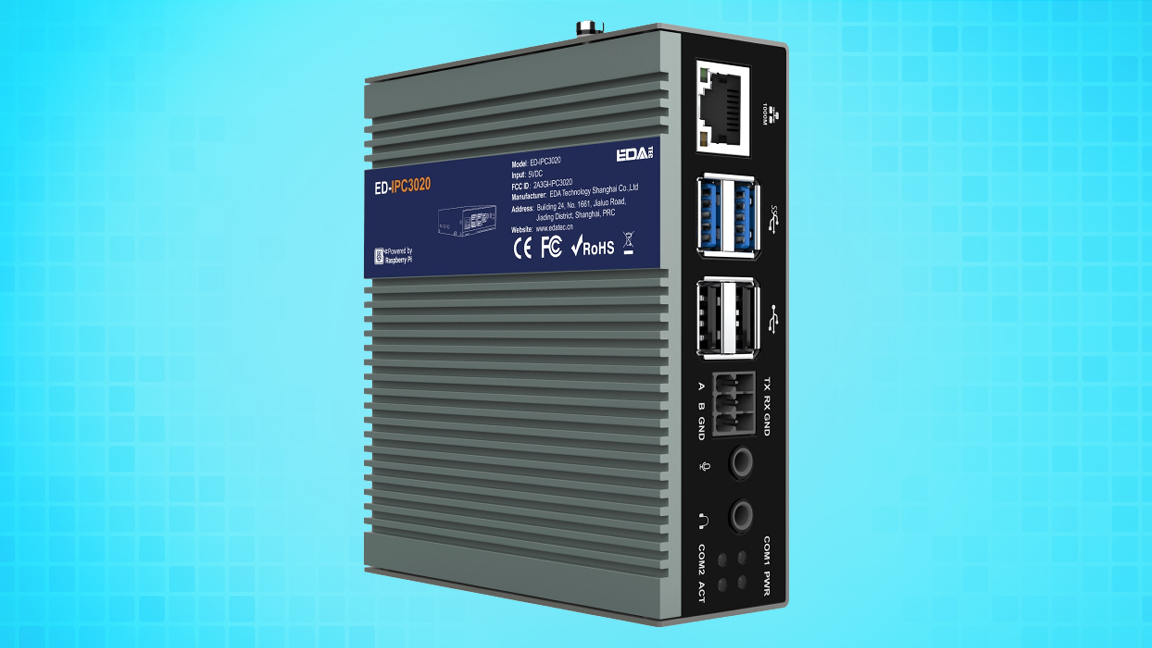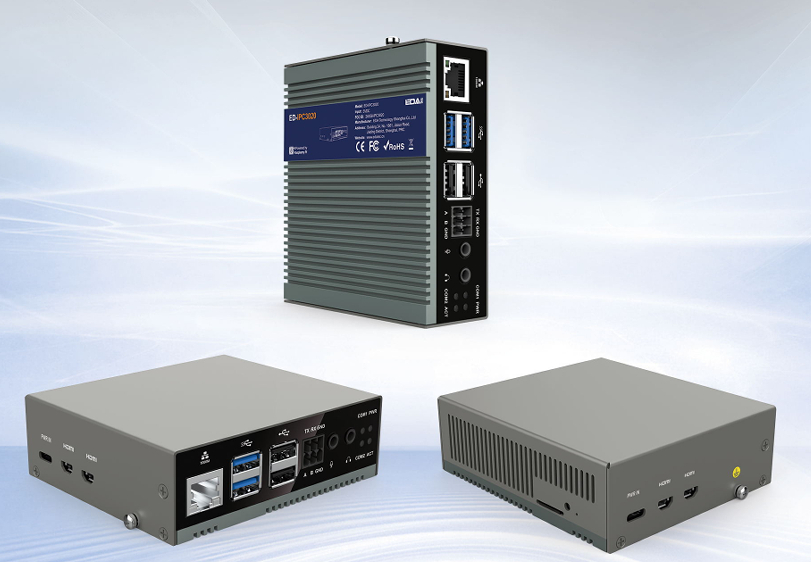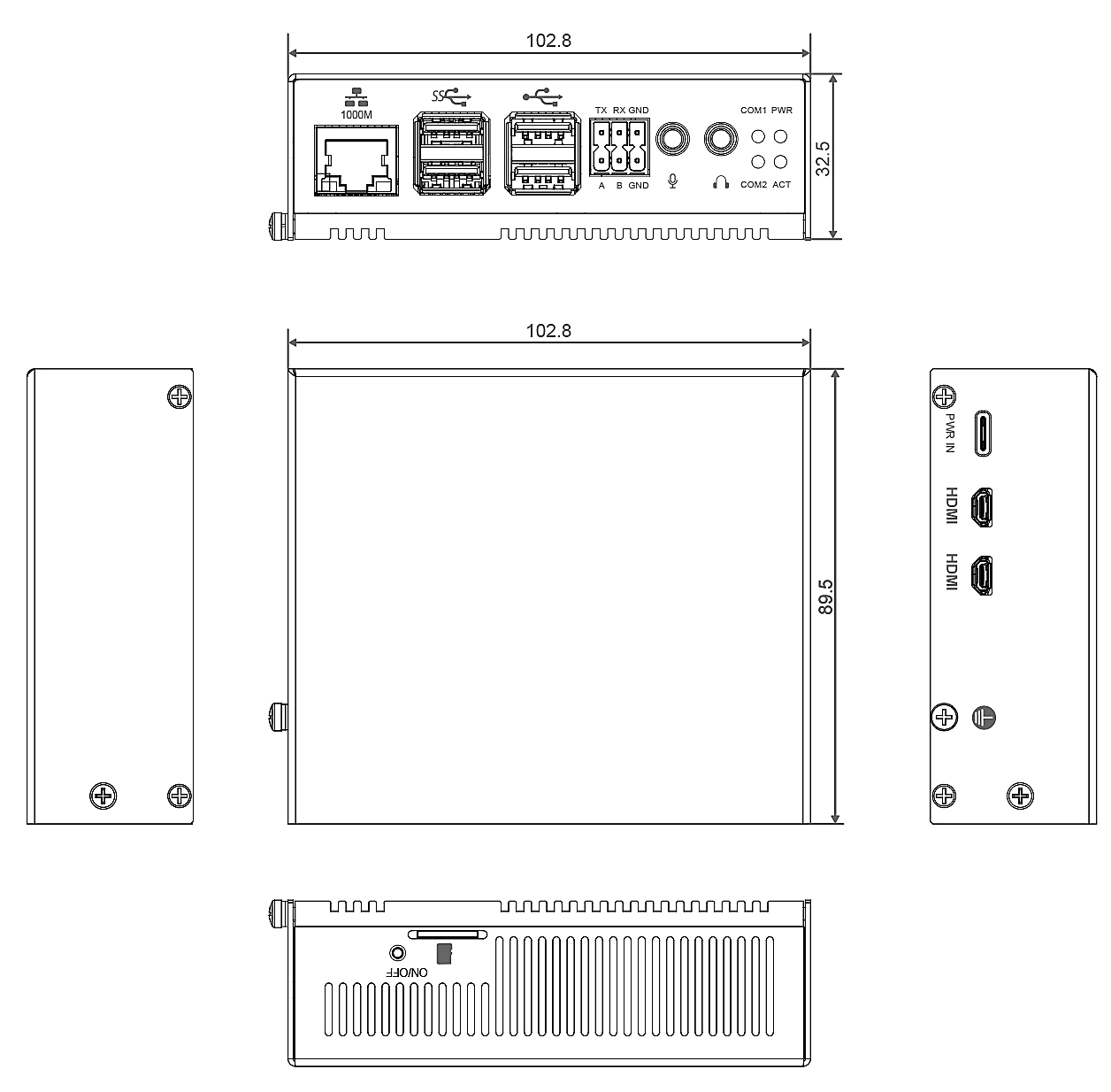Raspberry Pi 5 Industrial PC brings the heat with Integrated NVMe SSD

The Raspberry Pi 5 is the latest flagship board to grace the line-up of Raspberry Pis. Now that it’s been out for a few months, it’s not uncommon to find third party companies creating HATs, cases and more. Today we’ve got a neat industrial PC to share, the ED-IPC3020, put together by Edatec that uses the Pi 5 with an integrated SSD.
The ED-IPC3020 comes with a few customization options that users can choose from when ordering the PC. The Pi 5 comes with multiple RAM capacities, in this case, Edatec offers the 4GB and 8GB models. Users can also choose between a 32GB or 64GB microSD card, an optional Power over Ethernet (PoE) module and, of course, there are also choices for a 256GB and 128GB SSD.
The PC isn’t available just yet but you can already place orders for the no SSD versions over at AliExpress. As of writing, the 4GB model is available for $165 and the 8GB model is listed at $207.
The PC is expected to start shipping in early 2024. There is a notice on the product page that Edatec can be contacted for sample units, if available. Remember that industrial customers have to wait until 2024 for their slice of Raspberry Pi. The community gets fits dibs on Pi 5, but there is just under two weeks of 2023 left, so time grows short.


The main board powering this PC is a Raspberry Pi 5. It sports a Broadcom BCM2712 quad-core 64-bit Arm Cortex-A76 processor which can reach speeds as high as 2.4GHz. If you want to see more about the specs for the Pi 5 and what we think about it, check out our Raspberry Pi 5 review. Access is available to all of the external ports including HDMI output and usage of the power button. Upgrade options are available for the MicroSD card and SSD.
Software-wise, you can use any operating system you like. Edatec recommends the official Raspberry Pi OS but there’s no reason you couldn’t load a different OS or use it for something like gaming with Lakka or RetroPie. For a closer look at the ED-IPC3020, head over to the Edatec website.
Get Tom's Hardware's best news and in-depth reviews, straight to your inbox.

Ash Hill is a contributing writer for Tom's Hardware with a wealth of experience in the hobby electronics, 3D printing and PCs. She manages the Pi projects of the month and much of our daily Raspberry Pi reporting while also finding the best coupons and deals on all tech.
-
bit_user Nice case, but the Pi 5 has a glaring deficiency, for use as an industrial platform: no support for ECC memory.Reply
Beyond that, its PCIe expansion slot is just a single lane. So, NVMe performance will easily surpass SATA, but fall well short of what you'd get on most motherboards (nearly all of which have at least x2 lanes).
Specs-wise, the Orange Pi 5 Plus is a far better option. Still no ECC memory, but has more cores, supports more RAM, and PCIe 3.0 x4:
http://www.orangepi.org/html/hardWare/computerAndMicrocontrollers/details/Orange-Pi-5-plus.html
Also, better temperatures & power efficiency, since its SoC is made on a much better node. Furthermore, it has a NPU they claim is capable of 6 TOPS. -
KILI-1782 Reply
emmmmmyeah, raspberry pi's strengths are still mainly in the well-documented and stable ecosystem. This product is still good for industrial applications, such as wide voltage and industrial interface retention.bit_user said:Nice case, but the Pi 5 has a glaring deficiency, for use as an industrial platform: no support for ECC memory.
Beyond that, its PCIe expansion slot is just a single lane. So, NVMe performance will easily surpass SATA, but fall well short of what you'd get on most motherboards (nearly all of which have at least x2 lanes).
Specs-wise, the Orange Pi 5 Plus is a far better option. Still no ECC memory, but has more cores, supports more RAM, and PCIe 3.0 x4:
http://www.orangepi.org/html/hardWare/computerAndMicrocontrollers/details/Orange-Pi-5-plus.html
Also, better temperatures & power efficiency, since its SoC is made on a much better node. Furthermore, it has a NPU they claim is capable of 6 TOPS. -
bit_user Reply
I understand why people like it, but that doesn't make it suitable for all applications.KILI-1782 said:emmmmmyeah, raspberry pi's strengths are still mainly in the well-documented and stable ecosystem.
Certainly not where failures are either costly or dangerous. The Pi's SoC simply wasn't designed to that standard. Meeting only some of the requirements is insufficient.KILI-1782 said:This product is still good for industrial applications, such as wide voltage and industrial interface retention.
A proper industrial platform should have ECC the whole way through, as well as other RAS features. This thing is still just a toy.